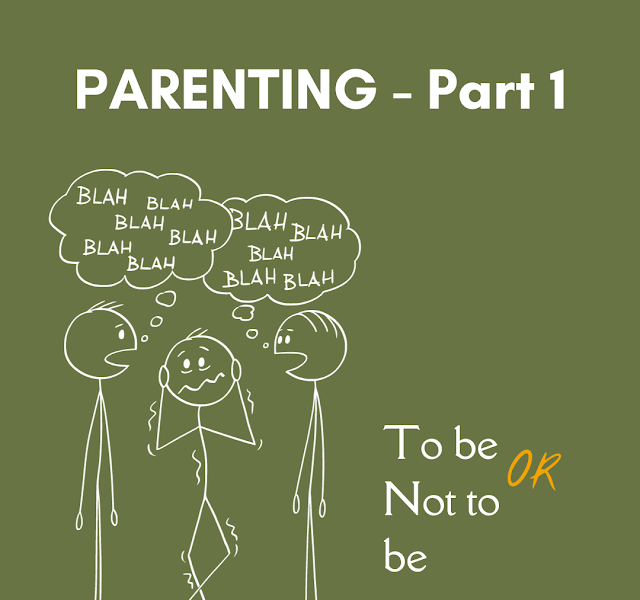There is no doubt that parenting is the most challenging job in the world. It is a multifaceted journey that involves love, responsibility, and a profound desire to provide the best for the child. Every parent approaches this journey differently, resulting in a spectrum of parenting styles. A one-size-fits-all approach is not appropriate for this role. Parents often gravitate towards one of three categories: (1)”Parents as informer,” (2)”Parents as players,” or (3)”Parents as performers.”
Each style has its own unique characteristics and understanding them can assist parents in finding their own balance in raising well-rounded, confident children. So let’s start with the first role – Parent as an Informer
The Role of the Parent as an Informer:
The “Parent as an informer” recognizes that their primary role is to inform their children. They understand that equipping their offspring with knowledge, values, and expectations is crucial for their development. Instead of making decisions for their children, they empower them to explore, learn, and make choices. This style aims to nurture independence, decision-making skills, and a strong sense of self.
- Fostering independence: Empowering children to make informed decisions helps them develop a sense of independence. They learn to think critically and weigh their options, which are valuable skills for later stages of life.
- Encouraging Critical Thinking: Parents as informers stimulate their children's critical thinking abilities. They encourage kids to ask questions, seek answers, and make choices based on available information. This nurtures intellectual curiosity and problem-solving skills.
- Building Confidence: When children are actively involved in making decisions, they gain confidence in their abilities. They feel that their opinions and choices matter, which boosts self-esteem and self-assurance.
- Developing Responsibility: Children raised by informer parents often become more responsible. They understand that their choices have consequences and learn to take responsibility for their decisions.
- Nurturing a Sense of Identity: This parenting style allows children to develop a strong sense of self. They are encouraged to explore their interests, values, and beliefs, which helps them understand who they are and what they stand for.
- Respect for Individuality: Parents as informers respect their children's individuality and uniqueness. They don't impose their own choices but allow their kids to develop their identities, leading to a healthy sense of self.
- Open Communication: Informer parents tend to maintain open lines of communication with their children. This encourages kids to share their thoughts and concerns, building strong parent-child relationships.
- Lower Stress Levels: Children raised in this environment may experience lower stress levels because they are not constantly pressured or micromanaged. They learn to manage their own time and make choices, which can lead to a more relaxed upbringing.
- Preparing for Adulthood: The informer parenting style equips children with valuable life skills that will serve them well as they transition into adulthood. They are more likely to handle decision-making, time management, and problem-solving effectively.
- Instilling Values: Parents as informers play a crucial role in passing on their values and beliefs to their children. By providing information and discussing values, children can develop a strong moral compass.
This parenting style contributes to the development of well-rounded, self-assured individuals who are better prepared to navigate the challenges of life and make informed, responsible decisions. However, it is very important for parents to understand positive and the negative sides of their “Role as an Informer.”
While the “Role of the Parent as an Informer” has many positive aspects, it’s important to recognize that there can also be potential drawbacks or negative aspects to this parenting style.
Some of the potential challenges associated with being an informer parent include:
- Lack of Structure: Overemphasis on providing information and independence may sometimes lead to a lack of structure in a child's life. Without clear boundaries and routines, children may struggle with time management and self-discipline.
- Overwhelm: Children who receive too much information without sufficient guidance may become overwhelmed. They may find it challenging to process all the data and make decisions, leading to stress and anxiety.
- Limited Support: Informer parents may be perceived as less emotionally supportive because they prioritize independence and self-reliance. Children may feel that their emotional needs are not adequately met.
- Missed Opportunities for Involvement: The focus on independence might result in missed opportunities for parents to actively participate in their children's lives. While fostering autonomy is important, there should also be a balance with parental involvement in key life experiences.
- Decision-Making Pressure: Some children may feel pressure when making important decisions, as they may not have the experience or maturity to handle certain choices. This can lead to fear of failure or making incorrect decisions.
- Insufficient Guidance: Providing information alone may not always be sufficient guidance for children. They may require more direct guidance and mentorship, especially in complex or critical areas of their lives.
- Risk of Isolation: A strong focus on independence can sometimes lead to social isolation if children are not encouraged to engage in social activities or seek out support from peers and adults.
- Ineffective Communication: Overemphasizing critical thinking and independence without nurturing effective communication skills can result in difficulty expressing feelings, thoughts, and emotions.
- Unpreparedness for Failure: Children raised in this style may have less exposure to failure and its associated life lessons. They may be less resilient in the face of setbacks and adversity.
- Variability in Results: The informer parenting style may yield variable results depending on the child's individual characteristics. Some children may thrive in this environment, while others might struggle without more hands-on support.
Achieving a balance between providing information and offering emotional support is key to helping children thrive and develop into well-rounded individuals. Parents should consider their child’s unique needs and personality when choosing their parenting approach.
Check your Role acceptance!
The “Role of the Parent as an Informer” can be well received and highly effective under various circumstances, depending on the child’s personality, family dynamics, and the specific goals or values of the parents. Here are some circumstances in which this parenting style tends to be well received:
- Independent and Inquisitive Children:
- Children who are naturally independent and inquisitive tend to thrive in an environment where parents serve as informers. They appreciate the autonomy to make decisions and actively seek out information.
- Fostering Critical Thinking:
- Parents who want to prioritize the development of their child’s critical thinking skills often find the informer role well received. It encourages children to question, analyze, and evaluate information.
- Aligning with Family Values:
- When the parental expectations set by informer parents align closely with the family’s values and beliefs, children are more likely to respond positively. They understand the reasons behind the expectations.
- Respecting Individuality:
- In families where parents respect their children’s individuality and unique talents, the informer role is appreciated. It allows children to pursue their interests and make choices aligned with their strengths.
- Nurturing Autonomy:
- Parents who value autonomy for their children and want them to become self-reliant appreciate the informer role. This style supports the development of decision-making and problem-solving skills.
- Supportive and Encouraging Environment:
- The informer parenting style can be well received when it’s accompanied by emotional support and encouragement. Children benefit from knowing that their parents are there to guide and support them in their decision-making process.
- Open Communication and Dialogue:
- The informer style works well in families where open communication and dialogue are encouraged. Children feel comfortable discussing their thoughts and concerns with their parents, making it easier to navigate challenges and decisions.
- Balancing Structure and Independence:
- Parents who strike a balance between providing structure and allowing independence tend to be well received by their children. This approach can give children a sense of direction while allowing them the freedom to explore and make choices.
- Personalized Guidance:
- When the informer role involves personalized guidance that considers the child’s unique needs and interests, children are more likely to respond positively. Parents adapt their guidance to support their child’s individual growth.
- Highly Motivated and Goal-Oriented Children:
- Children who are highly motivated and have specific goals may thrive in an environment where parents provide information and guidance to help them achieve their objectives.
- Transparency in Parental Expectations:
- When parents are transparent about their expectations and provide clear explanations for their values and beliefs, children can better understand and appreciate the informer role.
The “Role of the Parent as an Informer” tends to be embraced in situations where children exhibit inherent independence, curiosity, and a preference for autonomy. Furthermore, when this parenting approach is consistent with the family’s values, promotes transparent communication, and creates a nurturing atmosphere, it can significantly contribute to the child’s growth and maturation.
While the “Role of the Parent as an Informer” can be effective in many situations, there are circumstances in which it may not be well received or may not align with the needs and preferences of the child or the family. Here are some situations where this parenting style may face challenges:
- Dependent or Uncertain Children:
- Children who are highly dependent on their parents for guidance and decision-making or those who lack self-confidence may struggle with the informer role. They might feel overwhelmed by the responsibility of making decisions.
- Highly Structured Environments:
- In environments where a high degree of structure and conformity is expected, such as certain schools or cultures, the informer style may clash with the established norms and expectations.
- Children with Special Needs:
- Children with special needs may require more direct guidance and support than the informer role typically provides. In these cases, a different parenting style or additional assistance may be more suitable.
- Crisis or Emergency Situations:
- During crisis or emergency situations, children may need immediate, clear directives rather than being left to make informed decisions. The informer role may not be well received in such circumstances.
- Young Children:
- Young children who lack the cognitive and emotional maturity to make complex decisions may not be well served by the informer style. They may need more hands-on guidance and structure.
- Conflict with Family Values:
- When the parental expectations set by informer parents conflict with the family’s cultural or religious values, it can lead to tension and resistance from children who may feel the need to conform to those values.
- Challenges with Self-Directed Learning:
- Some children may struggle with self-directed learning and require more structured education. In such cases, parents might need to adopt a different parenting style to support their child’s academic growth.
- High-Risk Behavior:
- In situations where children are engaging in high-risk behavior or are making dangerous choices, the informer role may not be well received. Parents may need to intervene more directly to ensure safety.
- Lack of Emotional Support:
- If the informer style is perceived as emotionally distant or lacking in support, children may not respond well. They may require more emotional reassurance and connection from their parents.
- Overwhelming Amount of Information:
- Providing an excessive amount of information without clear guidance can overwhelm children. Parents need to strike a balance between informing and guiding.
- Children Who Seek Structure:
- Some children thrive in structured environments and prefer having clear rules and expectations. They may feel lost or uncertain when left to make their own decisions without parental guidance.
To sum it up, the “Parent as an Informer” role may not find favor in situations where children require a higher degree of structure, have unique needs, or when the parenting style clashes with cultural or family values. Parents should remain flexible and attuned to their children’s needs, being prepared to shift to a different parenting approach when warranted.
Will your child accept your role?
Determining whether the “Role of the Parent as an Informer” is appropriate for your child involves considering your child’s individual characteristics, needs, and your family’s values. Here are steps to help you identify if this parenting style is well-suited for your child:
- Observe Your Child’s Independence and Autonomy:
- Pay attention to how independent and self-reliant your child is. Do they naturally seek to make their own decisions and show a willingness to take initiative?
- Assess Their Curiosity and Critical Thinking:
- Evaluate your child’s level of curiosity and critical thinking skills. Are they inquisitive, ask questions, and enjoy exploring new ideas and information?
- Consider Their Age and Developmental Stage:
- The appropriateness of the informer role can vary with your child’s age and developmental stage. Younger children might need more structure and guidance, while older children may be more capable of making decisions.
- Examine Their Emotional Resilience:
- Assess your child’s emotional resilience and ability to handle the consequences of their choices. Are they capable of learning from their experiences, including failures?
- Reflect on Family Values and Beliefs:
- Consider your family’s values and beliefs. Are the expectations you want to set for your child closely aligned with these values? Does the informer role fit with your family’s overall philosophy?
- Evaluate Your Child’s Learning Style:
- Understand how your child learns best. If they excel with self-directed learning and thrive in an environment that fosters independent exploration, the informer role may be a good fit.
- Seek Your Child’s Input:
- Talk to your child about how they prefer to receive guidance and support. Ask them about their comfort level with making decisions and whether they appreciate a more autonomous approach.
- Assess Their Response to Independence:
- Consider how your child responds when given the opportunity to make choices and decisions. Do they embrace this freedom and feel confident in their choices, or do they seem overwhelmed or hesitant?
- Balance Guidance with Independence:
- Strive to find a balance between providing guidance and allowing independence. It’s possible to adapt your parenting style over time, incorporating more or less guidance as your child’s needs and abilities change.
- Consider Your Child’s Well-Being:
- Ultimately, the informer role should contribute positively to your child’s well-being, development, and happiness. If you observe that it’s helping your child grow and flourish, it’s likely a suitable parenting style.
- Seek Professional Guidance When Necessary:
- In cases where your child has unique needs, special circumstances, or challenges, consider seeking advice from pediatricians, child psychologists, or family counselors to determine the most appropriate parenting approach.
Keep in mind that the path of parenting is continually evolving, and your child’s requirements may also evolve with time. Effective parenting relies on your ability to remain adaptable and attuned to your child’s development. The “Role of the Parent as an Informer” can be a beneficial strategy when it complements your child’s traits and your family’s principles, but it’s crucial to make adjustments when required to address your child’s shifting needs.
– Makarand Bhatt
The writer of this blog is an experienced Global Career and education advisor, helping parents to plan and manage the global education of their children. You can share your feedback/reviews or connect with him at makarand.bhatt@yahoo.com or +91 99676 38666.












